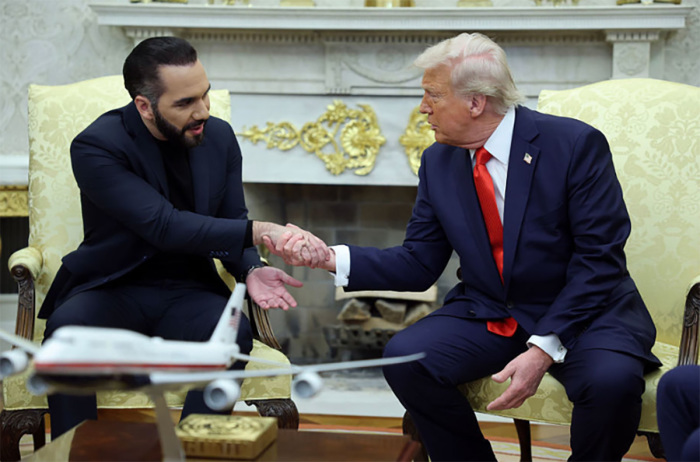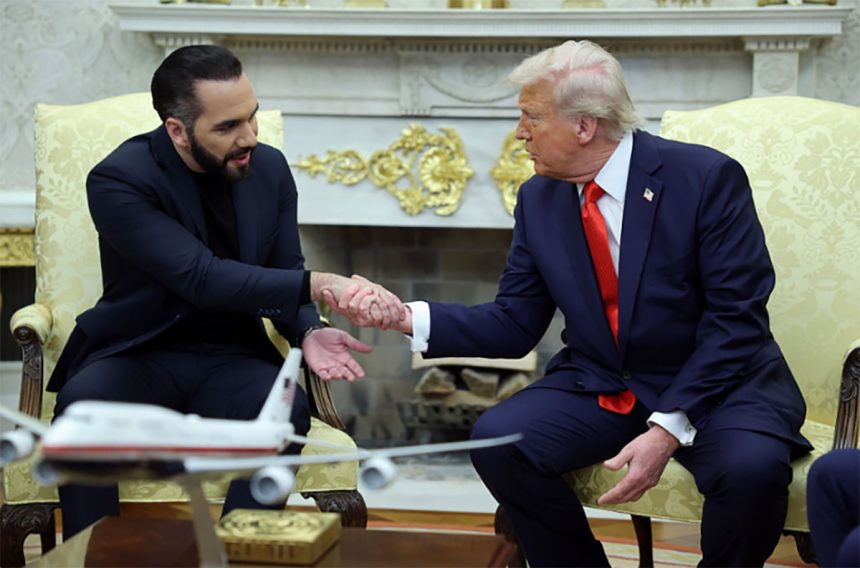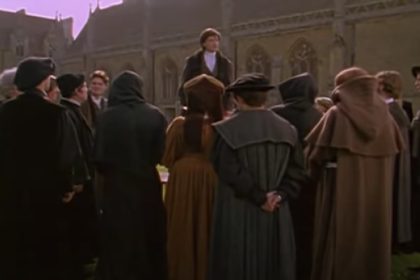
A federal appeals court has rejected the U.S. Justice Department’s request to halt a district judge’s ruling ordering the Trump administration to facilitate the return of an El Salvadoran deported in error and being held in prison.
On Thursday, a three-judge panel of the 4th U.S. Circuit Court of Appeals unanimously ruled that Kilmar Abrego Garcia, who was deported to El Salvador in March due to an administrative error, is “still entitled to due process.”
Judge Harvie Wilkinson, a Reagan appointee, authored the panel opinion, concluding that Abrego Garcia was “still entitled to due process” even if he was, as the administration claims, “a terrorist and a member of MS-13.”
“If the government is confident of its position, it should be assured that position will prevail in proceedings to terminate the withholding of removal order,” wrote Wilkinson.
“If today the Executive claims the right to deport without due process and in disregard of court orders, what assurance will there be tomorrow that it will not deport American citizens and then disclaim responsibility to bring them home?”
Wilkinson noted the Trump administration’s refusal to return Abrego Garcia “should be shocking not only to judges, but to the intuitive sense of liberty that Americans far removed from courthouses still hold dear.”
An El Salvadoran native who unlawfully entered the U.S. during the Obama administration and resided in Prince George’s County, Maryland, Abrego Garcia was deported last month under the allegation that he was an MS-13 gang member.
Abrego Garcia filed a lawsuit against multiple federal officials, including Secretary of Homeland Security Kristi Noem and Acting Director of U.S. Immigration and Customs Enforcement Todd Lyons.
Lawyers for Abrego Garcia claimed that he was wrongfully deprived of due process and also argued that a judge had granted him federal protection from being deported in 2019.
U.S. District Judge Paula Xinis, an Obama appointee, rejected the claim that Abrego Garcia was a member of MS-13, issuing an order that he be returned and that “the ‘evidence’ against Abrego Garcia consisted of nothing more than his Chicago Bulls hat and hoodie, and a vague, uncorroborated allegation from a confidential informant claiming he belonged to MS-13’s ‘Western’ clique in New York — a place he has never lived.”
Department of Homeland Security Assistant Secretary Tricia McLaughlin alleged in a statement provided to the Daily Caller News Foundation that “intelligence reports” substantiate the government’s belief that Abrego Garcia “is involved in human trafficking,” adding that “he should be locked up.”
Last week, the U.S. Supreme Court issued an unsigned order telling the government to begin the steps of returning Abrego Garcia to the United States, partly denying the government’s request to vacate a lower court ruling.
“The order properly requires the government to ‘facilitate’ Abrego Garcia’s release from custody in El Salvador and to ensure that his case is handled as it would have been had he not been improperly sent to El Salvador,” read the Supreme Court ruling.
Since last month, El Salvador has received over 200 immigrants accused by U.S. authorities of belonging to gangs and criminal groups. All were transferred to the Terrorism Confinement Center, a prison that houses alleged members of criminal organizations.
Earlier this week, U.S. President Donald Trump and El Salvadoran President Nayib Bukele met at the White House, where Bukele said that he would not return Abrego Garcia.
“I’m not going to release him. We don’t like releasing terrorists in our country,” he stated.
U.S. Sen. Chris Van Hollen, D-Md., traveled to El Salvador to visit with Abrego Garcia this week, drawing strong rebuke from the White House. Press secretary Karoline Leavitt said during a press briefing that Abrego Garcia’s wife had previously filed for a protection order against him. In a media statement Wednesday, his wife, Jennifer Vasquez Sura, said that she was a survivor of domestic abuse from a previous relationship and “acted out of caution” when she filed the civil protective order “following a disagreement with Kilmar.”
“Things did not escalate, and I decided not to follow through with the civil court process,” she stated. “We were able to work through the situation privately as a family, including by going to counseling,” Vasquez Sura said.








